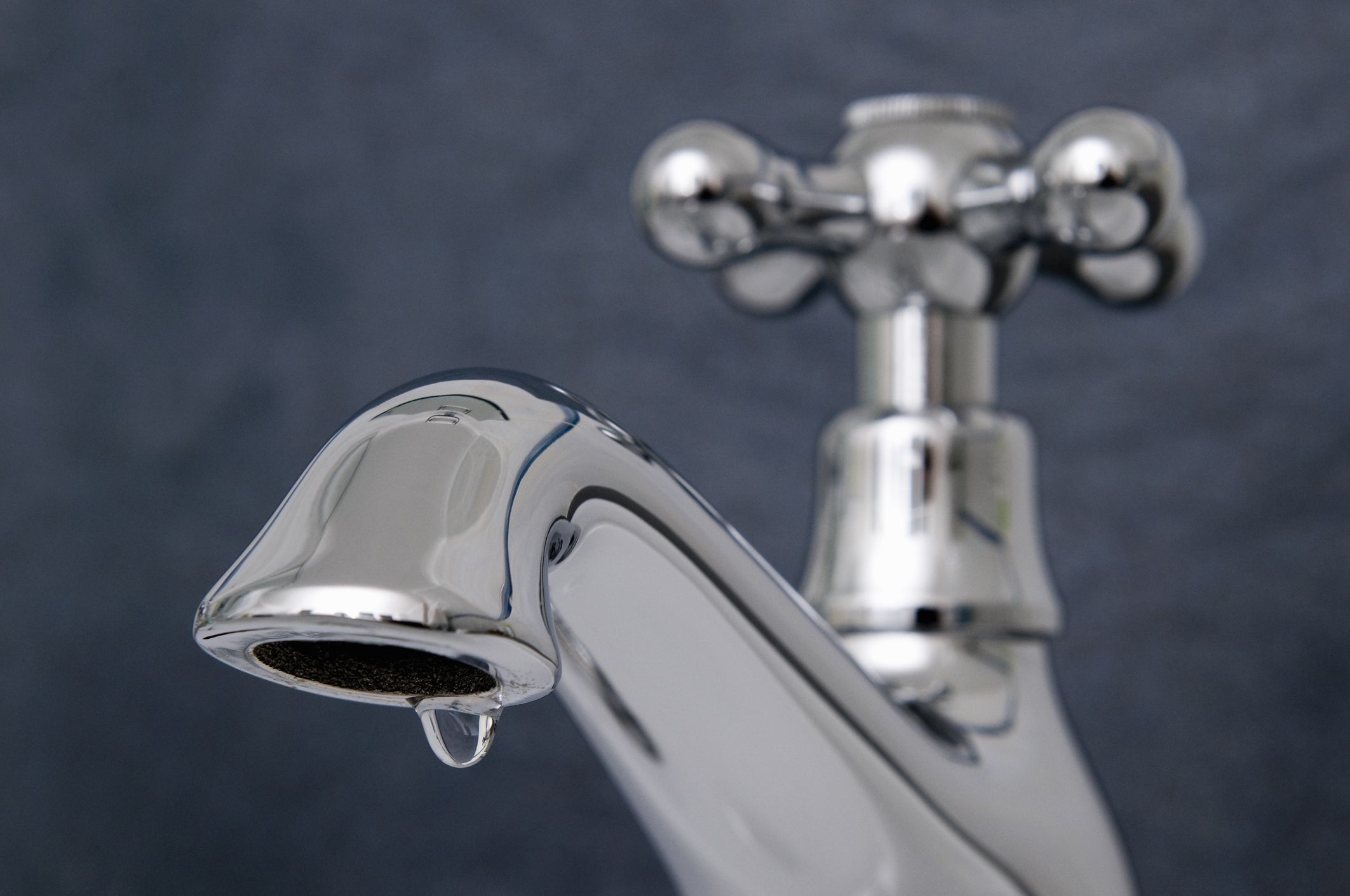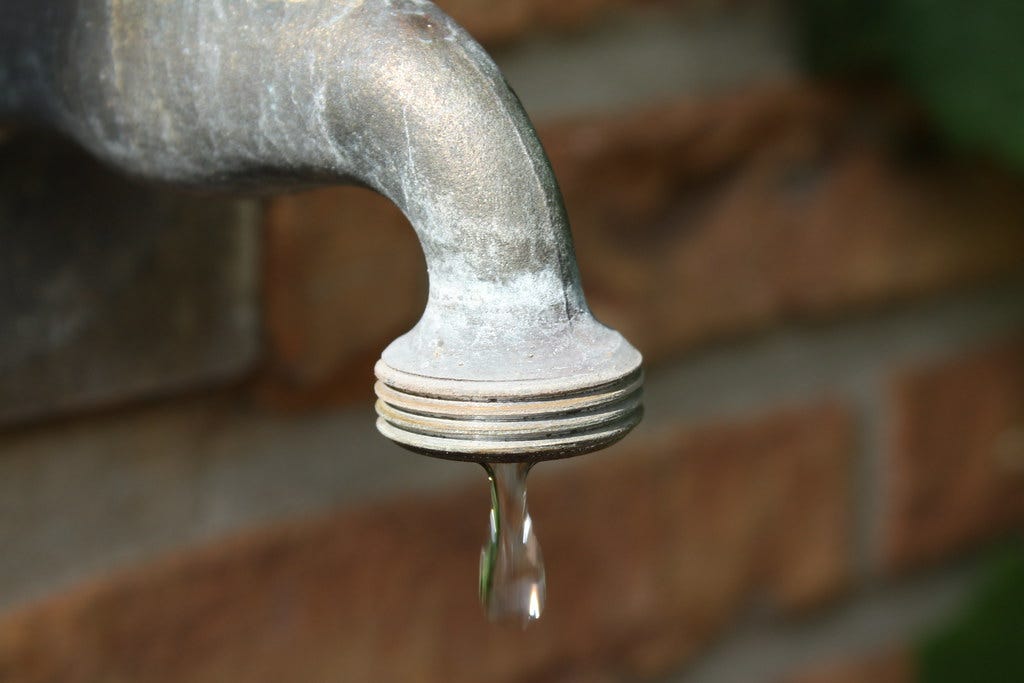We've stumbled on this post pertaining to Potential Health Risks Associated With Leaky Faucets directly below on the web and figured it made good sense to discuss it with you on my blog.

Intro
A leaky tap might feel like a minor aggravation, yet its consequences prolong far beyond the occasional drip. Recognizing the impacts of a leaky faucet is vital for both homeowners and the setting. In this article, we'll explore the different influences of this usual family issue and why resolving it promptly is crucial.
Reasons For Leaky Faucets
Leaky faucets can result from a variety of factors, consisting of damage, high water stress, and corrosion. Over time, the constant use of taps can bring about damaged seals and gaskets, creating leakages to establish. In addition, excessive water pressure can place stress on plumbing fixtures, resulting in leakages. Rust and corrosion can likewise deteriorate faucet parts, making them prone to leakage.
Water Waste
Among the most significant effects of a dripping faucet is water wastage. Also a tiny drip can amount to gallons of drainage with time. This not only drives up water bills however likewise adds to water deficiency and ecological destruction. Addressing leaky faucets promptly is critical for conserving this valuable resource and reducing its impact on the planet.
Financial Effect
In addition to wasting water, leaking faucets can additionally have a considerable economic influence. Raised water costs are a straight consequence of water wastefulness, setting you back home owners thousands of bucks yearly. In addition, the cost of repairing water damage triggered by leakages can be significant, especially if left unattended for an extended period.
Environmental Impact
The environmental impact of leaky taps extends beyond water wastefulness. By conserving water, house owners can add to more comprehensive efforts to mitigate water scarcity and safeguard all-natural ecological communities. Lasting options such as rainwater harvesting and water-efficient components can even more minimize the environmental footprint of home water use.
Technological Solutions
Developments in innovation have led to the advancement of smart faucets and water-saving devices that assist lessen water waste. Smart taps use sensors to discover movement and change water circulation as necessary, lowering waste without sacrificing convenience. Water-saving devices such as aerators and low-flow showerheads are also effective in conserving water without compromising performance.
Global Perspectives
While leaking taps may look like a local issue, they contribute to more comprehensive worldwide obstacles such as water shortage and environment change. In regions currently facing water anxiety, every decline counts, making leak avoidance and fixing necessary. By taking on water-saving methods and buying lasting modern technologies, house owners can play their component in dealing with these pushing international issues.
Regulatory Procedures
Federal government regulations play a vital duty in reducing the effect of leaking taps and advertising water preservation. From building codes that need water-efficient components to water-saving incentives and refunds, policymakers have a variety of devices at their disposal. By applying and enforcing these policies, governments can make sure that home owners focus on water preservation in their daily lives.
Area Effect
Addressing leaking faucets needs collective efforts at the neighborhood level. By increasing awareness concerning the significance of water preservation and offering sources for leak detection and fixing, regional authorities can encourage property owners to do something about it. Initiatives such as water-saving discount programs and leak discovery campaigns can incentivize habits adjustment and promote liable water usage.
Situation Researches
Real-life examples of the effect of dripping faucets highlight the relevance of proactive upkeep and prompt repair work. From water damage to skyrocketing water costs, the effects of overlooking leakages can be serious. By sharing these case studies, home owners can much better comprehend the significance of addressing dripping faucets promptly.
Educational Campaigns
Educational projects play an essential function in raising awareness concerning the effects of leaky taps and promoting water preservation methods. Through workshops, seminars, and on the internet sources, homeowners can learn exactly how to spot and fix leakages themselves. By encouraging people with expertise and tools, instructional campaigns can foster a culture of liable water use within neighborhoods.
Health Concerns
Leaky faucets can create helpful settings for mold and mildew development, posturing wellness dangers to owners. The existence of mold can intensify respiratory system problems and allergies, specifically in at risk people. Furthermore, water damage resulting from leakages can compromise the architectural integrity of buildings and lead to expensive repair work.
Do it yourself vs. Specialist Fixing
When confronted with a leaky faucet, homeowners commonly debate whether to try repair work themselves or employ a professional plumber. While do it yourself fixings can save money, they may not always resolve the underlying issue efficiently. Professional plumbing professionals have the expertise and devices to identify and take care of leaks correctly, guaranteeing long-term remedies and peace of mind for homeowners.
Safety nets
Stopping dripping faucets requires regular upkeep and positive measures. Easy jobs such as replacing worn-out washers and seals can avoid leaks from establishing. Furthermore, upgrading to top notch fixtures and reducing water stress can help lengthen the life expectancy of taps and lessen the risk of leakages.
Conclusion
To conclude, the effects of a dripping faucet expand far past the occasional drip. From water waste and increased water costs to health worries and environmental influence, the repercussions of ignoring leaks can be substantial. By dealing with dripping faucets without delay and adopting water-saving practices, home owners can mitigate these impacts and add to a more lasting future.
Why Is It Important To Fix Your Leaking Tap/Faucet?
A leaking tap can be a big problem. The constant dripping sound will not give you a restful night’s sleep. No matter what you try to wrap the faucet with, the water will keep dripping. You might feel like you can avoid that noise from your kitchen sink tap just fine because it is not a big deal for you. You can even sleep through that dripping sound from your room’s bathroom tap. Well, this is only a minor problem. Even if this is not a reason for you to get your leaking tap fixed, let us give you a few more reasons that will help you understand why it is important to get your tap leaking issue fixed right away.
Prevent Water Waste and Damage
Most homeowners have no idea about the common causes of a leaky faucet, which can lead to not knowing how to spot a leaking tap or faucet. If left unfixed, a leaky faucet wastes approximately 11356 litres of water each year. It naturally has a negative impact on the environment. Also, it uses up too much of the local water supplies, which can result in water restrictions by the government. A leaking faucet not only wastes water but can also cause water damage where it should not collect. Sometimes, a leaking faucet can be due to leaking pipes, which can lead to damage under the faucet, under the house, inside walls, or even elsewhere.
To Save Water Bills
You might think that a leaky faucet is not really wasting that much water and may not be a big deal. However, you are not just wasting a lot of water every year, you are also wasting even your hard-earned money. In fact, leaks are one of the most common problems of faucets. If left unchecked, you will start noticing your monthly water bill is going up. Then you will realize how expensive a dripping faucet can prove to be.
Every 3.8 litres of water that you use in your house is tallied and included in your water bill. When a leak occurs, you will be charged for the water you do not even use. If you do not want to waste your hard-earned money, then you need to get your leaking tap repaired immediately. It might also be a sign that you need to replace your tap.
Now to fix a leaking faucet, you also need the right tools and expertise. If you try to do it on your own, you will only do it more harm than good. Therefore, instead of taking risks, it will be best to hire a professional plumber to fix your leaking tap.
To Avoid Household and Environmental Damage
There are different reasons why your tap is leaking. If left unchecked, it can cause expensive structural damage to your home. It can also cause damage to your floors, walls, and the foundation of your home. If you are still not paying attention, other simple leaks could damage your home in some way, and you will find it hard to live there.
Not only can a leak cause damage to your home, but it can also even damage the environment. The leaks that occur in normal households can add up to around 37,854 litres of water wasted each year. Using this wastage of water, 270 loads of laundry can be done. Can you now imagine how much water is being wasted and how huge an effect on the environment it is causing?
Conclusion
It is important to fix your leaking tap because if it is ignored, there can be damage and negative impacts like mold and mildew on the bathroom wall or even under the sink. It can also cause structural damage to your home and waste a lot of water that can increase your month’s water bill. Who would want that extra expense? Therefore, it is important that you hire a professional plumber to assist in fixing the leaking tap or faucet as they will have the skills and tools to fix it properly and efficiently.
https://tapfaucetcity.com/articles/why-is-it-important-to-fix-your-leaking-tap-faucet/

As a devoted person who reads on The Environmental Impact of Leaky Faucets, I thought sharing that post was necessary. Enjoyed reading our blog entry? Please share it. Let others check it out. We value reading our article about Causes and Consequences of a Leaky Faucet.
Comments on “The Impact of Leaking Faucets”